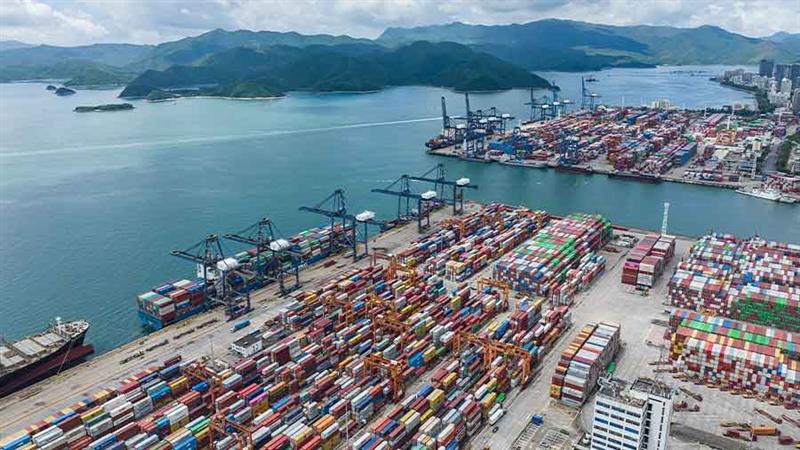China’s Headquarters Economy: A New Path towards Industrial Upgradation
By Vivian Ni
Mar. 15 – China, the world’s largest production base, is no longer satisfied with lying at the lower levels of global supply chains and holding just the manufacturing arms of MNCs. Instead, the country has begun offering a warmer welcome to foreign-invested enterprises (FIEs) that actually bring their “brains.” Foreign-invested headquarters (HQs) functioning in the realm of management, investment as well as research and development (R&D) are burgeoning in China’s major cities, and have impacted significantly on both city functions and human resource movements.
China’s headquarters economy
An HQ economy is defined as being sufficiently resource-rich to attract a cluster of corporate HQs. Not only does it improve the operational efficiency of FIEs by gathering the most knowledge-intensive segments of corporate value chains in “center cities,” it also brings desirable economic benefits to its surrounding areas by optimizing resource distributions among different regions and industrial chains.
If we look at China’s HQ economy picture, it is not hard to see that almost every “center city” attracting multinational HQs is emerging from the country’s existing major industrial bases. The rise of Shanghai is supported by the manufacturing prosperity in the Yangtze River Delta, the attractiveness of Guangzhou and Shenzhen comes from the busy export-driven production of the Pearl River Delta, and the emergence of Beijing is based on the fast development of the Bohai Economic Rim which has a particular focus on heavy industries.
Several of China’s key first and second-tier cities are competing to attract foreign-invested HQs by offering various incentives. In general, the following three types of entities have a chance to receive government benefits, if meeting specific regional requirements:
- Foreign-invested management companies, which function as regional headquarters
- Foreign investment companies, which function as holding companies
- Foreign-invested R&D centers, where R&D is conducted directly for the needs of customers in China and in emerging Asia
HQ city rankings
In an effort to assess the ability of Chinese cities to attract HQs, China’s HQ Economy Research Center releases an annual ranking listing China’s top 35 cities suitable for an HQ. In last year’s rankings, Beijing and Shanghai ranked first and second, respectively, topping the list for seven consecutive years. Shenzhen surpassed Guangzhou to take third place for the first time last year and boasted the highest level of economic openness. Wuhan stood out as the only central Chinese city listed in top 10, and the fast-growing southwestern cities of Chengdu and Chongqing ranked eighth and tenth, respectively.
While the rest of Chinese cities are catching up rapidly, Beijing and Shanghai still remain the top two choices for foreign-invested HQs by a significant margin. Both cities received high scores for their fundamental conditions, commercial facilities, R&D ability and professional services. The rankings also found that Shanghai provides the best government services. Altogether, the two cities accommodate over 70 percent of global Fortune 500 companies’ regional HQs located in China.
It is also worth noting that there are some differences in the types of HQs the two cities attract, because of their distinct features and functions.
“Beijing mostly attracts policy-oriented industries, as it is China’s political center. Setting up HQs in Beijing enables easier communications with the central government. In contrast, Shanghai is more attractive to consumer-related industries as it is the country’s most commercialized city. For the same reason, financial institutions providing consumer banking services also prefer to choose Shanghai,” said Carter Yang, managing director of Robert Walters China, a UK-based recruitment company.
The governments of Beijing and Shanghai have done a great job developing their regional HQ economies, but there are still challenges on the road ahead. In Shanghai’s case, although the city boasts more than 900 foreign-invested HQs and R&D centers, many of the HQs operate at low corporate energy levels and do not fully function as the “brain” for multinational corporations’ (MNCs’) global production, outsourcing and sales. In addition, China’s strict foreign exchange control also poses a restraint to many HQs’ business stretch across the mainland. For instance, the restricted ability of settling imports in U.S. dollars has driven a number of China-located foreign HQs to choose Hong Kong as a location for re-exportation.
Impact on HR movements
The increasing number of regional HQs has also been impacting on China’s HR picture. In addition to their need for low-cost labor and middle managers, MNCs with regional HQs located in China are now searching for high-end talent with both local and international experience.
According to the “China Salary Survey 2012” recently released by Robert Walters, the development of China’s HQ economy has significantly increased the cross-border recruitment activities of MNCs for some of their China-based positions. At the same time, companies also prefer international candidates which have a strong network of local contacts and a thorough understanding of the local market and culture. Mandarin skills will become a prerequisite in the hiring process, and professionals in the field of engineering, quality control and operations will see better career opportunities as more and more companies set up their R&D centers in China.
Experts foresee a wave of high-level talent relocating to China from both Western countries in financial turmoil and other traditional regional HQ cities in Asia as the country’s emerging HQ economy continues to gather speed.
However, despite such potential, the talent shortage in the Chinese market is still evident. Therefore, the competition among companies for high-end specialists remains fierce, and staff retention has grown into a key challenge, says the Robert Walters report. Companies looking to attract and retain the best employees may want to consider readjusting their salary packages and offering better opportunities for career development or training.
Dezan Shira & Associates is a boutique professional services firm providing foreign direct investment business advisory, tax, accounting, payroll and due diligence services for multinational clients in China. For further advice and specifics relating to setting up regional headquarters in China, please email china@dezshira.com, visit www.dezshira.com, or download the firm’s brochure here.
Related Reading
 The China Tax Guide (Fifth Edition)
The China Tax Guide (Fifth Edition)
This popular book, fully updated with all recent tax changes and amendments, details all taxes in China affecting businesses and individuals, how to calculate the amounts due, tax registration and filing procedures, tax minimization techniques, and claiming VAT rebates. It also details good financial management techniques, handling negotiations with the tax bureau and annual audit and compliance procedures.
 Shanghai City Guide
Shanghai City Guide
Asia Briefing’s Shanghai City Guide is designed for the investor seeking a general overview on China’s most comprehensive industrial and commercial city. Due to its rapid economic growth in recent years, Shanghai is perhaps China’s most globalized city and, in addition to its role as Mainland China’s premier financial center, it is boasts an abundance of arts, culture, and cutting-edge technology.
 Beijing City Guide
Beijing City Guide
Asia Briefing’s Beijing City Guide is designed for the investor seeking a general overview of China’s political and cultural heart. Also one of the country’s most scenic and historical locations, Beijing’s numerous landmarks such as the Forbidden City and proximity to the Great Wall also make the city a wonderful place to live, work, or visit.
 Shenzhen City Guide
Shenzhen City Guide
Asia Briefing’s Shenzhen City Guide is designed for the investor seeking a general overview on China’s steadily growing tech city and important gateway to Hong Kong. Starting as China’s first – and eventually most successful – special economic zone, Shenzhen has seen vast sums of investment pour into the country both from abroad and from within China since the late 1970s.
 Guangzhou City Guide
Guangzhou City Guide
Asia Briefing’s Guangzhou City Guide is designed for the investor seeking a general overview on one of China’s largest cities. As capital of Guangdong, one of China’s most developed and prosperous provinces, Guangzhou is also the center of manufacturing in the region and hosts several important annual trade fairs.
Strong Showing for Chinese Cities on List of Asia-Pacific Cities of the Future
China’s First Tier Cities Compete to Attract Foreign Headquarters
Dongguan Issues New Measures to Encourage Headquarter Enterprises
Suzhou Government to Grant Incentives for Headquarter Enterprises
- Previous Article China Takes Further Steps Towards Internationalizing the Renminbi
- Next Article China Making Improvements in Copyright Protection
























